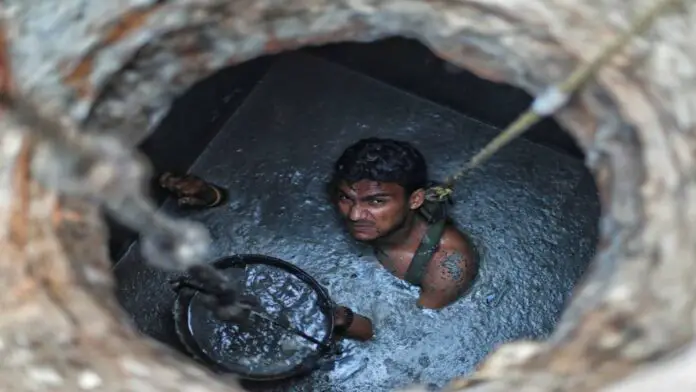
The Madras High Court on Wednesday demanded a status report from the state administration on the steps taken to eliminate manual scavenging totally (Safai Karamchari Andolan and Others v. Union of India and Others). A Division Bench consisting of Chief Justice Sanjib Banerjee and Justice PD Audikesavalu was hearing a slew of petitions on the subject, including one filed by the NGO Safai Karamchari Andolan.
“Something needs to be done for them on a social level.” They are born with the belief that this is what they will do, and yet this is not the case. The Court stated verbally that “options for ordinary life must be accessible,” and that “if you can offer some possibilities for them,” the Court will be grateful.
The government had produced a status report as required by the court, but the petitioners had raised several concerns about it. One of the requested improvements was an increase in the amount of compensation payable in the event of the death of someone doing manual scavenging, which the State had set at ten lakh dollars due to a Supreme Court judgement. The petitioners requested a compensation increase of Rs. 50 lakh. The Bench agreed that the compensation, which was set in 2014, was too low. As a result, the State was directed to use 2014 as the base year and compute the increase using the wholesale price index or any other comparable index.
“In the event of a death, the State’s agreed-upon compensation of ten lakh rupees may be too low because it was set in 2014, and the cost of living and price indexes have uniformly gone up since then,” the Bench stated. Furthermore, Advocate Srinath Sridevan, who spoke on behalf of the petitioners, noted that no criminal prosecution, which is the only deterrence, is being sought against local body heads, and requested that this be addressed. “They’re currently seeking criminal charges against contractors and disciplinary proceedings against municipal officials.” The only deterrent is if local body heads are prosecuted as well. Of course, they may prove they had nothing to do with it and come out on the other side after the trial. Sridevan continued, “We propose that local body heads be prosecuted as well.” In addition, the petitioners noticed a mismatch in the number of manual scavengers recognised by the State. The Court was informed that, according to a 2014 report from the State government, there were only 462 manual scavengers in the entire State. However, it was said that the true figure was closer to 3,000. Sridevan countered.
“We will never be able to reach out to the manual scavengers and rehabilitate them unless we know who they are.” Manual scavenging carries a negative connotation. They will not come out unless the State Government makes the necessary effort. It’s hardly anything to brag about if you’re a manual scavenger. The state government will have to reach out to them; some sort of outreach will be required.”
After examining the submissions, the Bench requested a new status report and set a hearing date for four weeks later. The Court urged local body authorities and corporations across the State to ensure that no manual scavenging occurs within their jurisdictions and to file written undertakings to that effect on a previous date of hearing. The High Court further stated that if any manual scavenging activity is discovered within their authority, the leaders of local authorities and commissioners of corporations will be held personally accountable.








